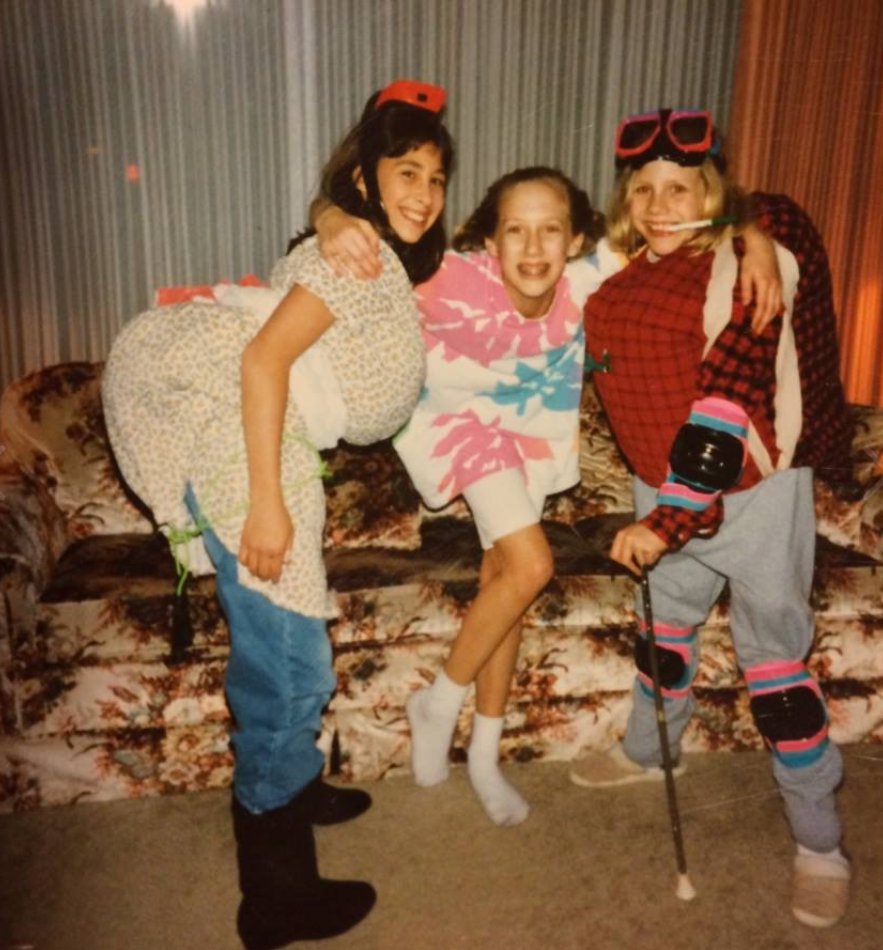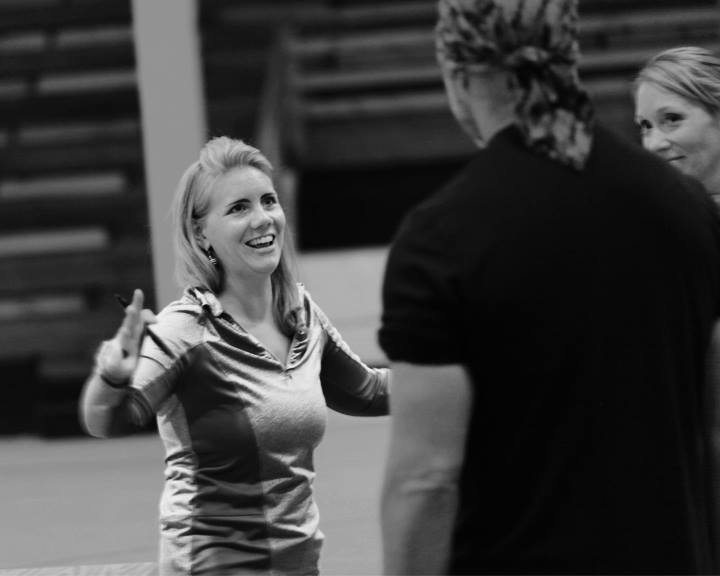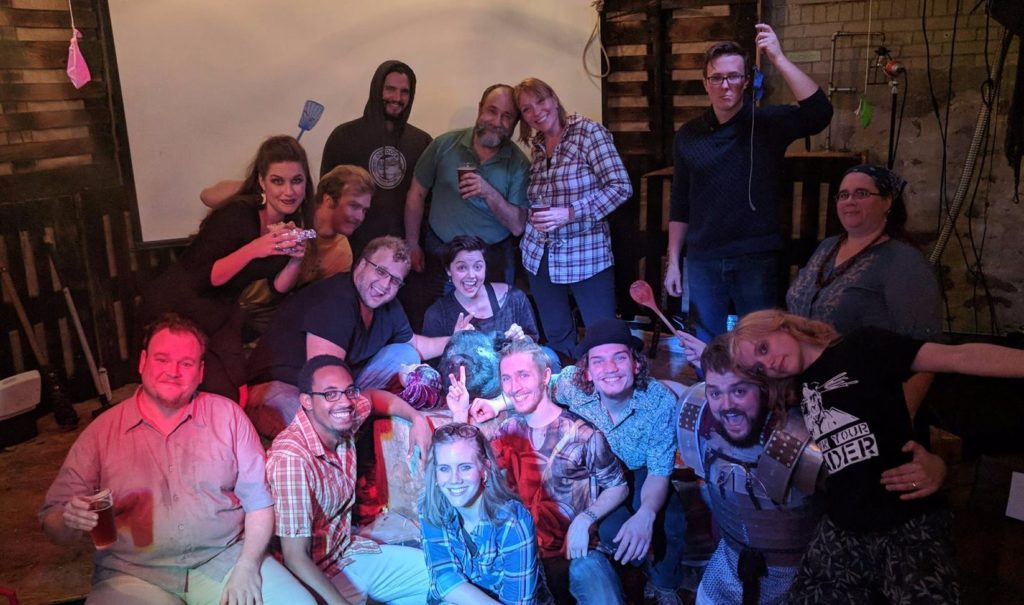Brian Cabell sits down with the 34-year-old cofounder and artistic director of the Upper Peninsula Shakespeare Festival and the Wolf’s Head Theater Company.
BC: Where were you born and raised?
JW: Primarily downstate. Westland, Michigan, the Detroit metro area. I was raised there with my mom and my dad, my brother and my sister. We were very close when we grew up, not so close now that I moved away.
BC: Middle class?
JW: Yeah, middle class. My dad’s an engineer, my mom has mostly stayed at home. She’s worked several odd jobs. Me? I’m definitely the black sheep of the family. (She laughs)
BC: Why do you say that?
JW: Well, I’m artistic, creative. My dad’s an engineer, my brother’s also an engineer. My sister was very “cool” growing up while I was more of an artistic nerd person. So I was very different from them. But we still get along.
BC: When did your realize that you were different, that you were a nerd?
JW: I don’t know. I just always was. I pretty fervently pursued nerddom, and that’s not typical of my family. My family’s pretty conservative, I guess you’d say. They’re typical and proudly typical. But I discovered I was interested in theater and music and I pursued doing my own thing all the time. My family was supportive but they knew nothing about it and didn’t know how to assist me so they just let me do my own thing.

BC: Did you have a difficult adolescence?
JW: It was difficult in the sense that I was different from others, and I had to come to grips with being okay with that. But theater and creative expression has always been a great coping mechanism. Ever since I can remember, I was in theater. And if there wasn’t an opportunity, I made my own opportunity. So if we were in a choir class, I’d say, “Hey, let’s put on a play!” so that the director in me has always been present.
BC: What’s your most memorable moment in theater when you were younger?
JW: Well, when I was younger, there wasn’t much community theater and we didn’t go to many plays, but my parents did expose us to classical music. My sister played the violin, my brother played the viola, I played the cello. So when I was very young, my brother and sister were in the pit orchestra for a play, and I ended up backstage somehow, and I saw this dance number onstage and this fervent musical interlude, and then they just froze and the lights went out, and I thought, “Holy crap! That’s what I want to do!”
BC: So was it performing on a stage that appealed to you?
JW: No, it wasn’t necessarily performing. It was more the act of putting it together. I remember really being in awe of how orchestrated everyone really was and imagining all the work that went into it. What really got me was the directing side of it. When I was younger, I loved performing–like Martin Scorsese started out as an actor and he’s still an actor in some of his productions, he thinks it makes him a better director–and I think years of acting professionally and semi-professionally made me a lot better at being a director.
BC: So let’s move along. Your college years. Where’d you go to school?
JW: Eastern Michigan University. I was seventeen when I started and I knew I wanted to do something creative but I wasn’t sure what that was. I didn’t understand brass tacks about paying for college. If had understood that, I wouldn’t have been there for six years! (She laughs) Studying music, studying theater, studying art, just taking my time, using it as a vehicle to be on stage. I was on stage in many productions at Eastern and directed every chance that I could. So I finally came up with a comprehensive communications/theater arts/music performance degree. But I really had no trajectory, I was just taking classes that interested me. I loved the department, I loved the faculty.
BC: What were you like outside of the theater?
JW: I wasn’t someone who went out to the bars or partied or did anything. The connections I made with other people in college were those I was in a play with or in a class with. My personal life was the theater. That’s what I did. I did go to parties but they were theater parties. Everything was theater-focused. And that has carried over to my professional and adult life.
BC: So you finally graduate college. Then what happens?
JW: Well, I realized I was an adult now, and what do I do with a theater/comprehensive communications degree? I started getting really nervous about all the student debt that I had accumulated, so I began working immediately. In an ice cream shop. For a long time. I loved it actually. I became the manager and got to hire my own staff. We had a great time. It wasn’t life and death, it was ice cream, and it afforded me evenings to be an actor professionally. Around Ann Arbor, Royal Oak, in the Detroit area.
BC: Still, you were working at an ice cream shop, but you really wanted to be in theater.
JW: I was struggling and I got an agent because this was when the film incentive was happening in Michigan. There were a lot of opportunities for actors, and there was potential for gigs that were more lucrative. But a lot of the regional theaters there had rehearsals during the day and it was hard to have a nine-to-five and do that. I couldn’t do that. I had to have a job. So I wondered how these other actors do that–Well, they have a spouse that takes care of them or they live with their parents. But I’ve always been fiercely independent so I couldn’t figure out a scenario like that that would work for me. For the longest time, I was just working and trying to find gigs that were in the evening. I continued to do that but I felt myself a little stifled. I knew I had to pay back my student debt so I had to find a career on top of my acting career, or I’d never make a hole in this debt.
BC: So you left the ice cream shop.
JW: Yeah, I started working in a nonprofit downstate–at the Great Lakes Zoological Society. It is now defunct. I loved it! I loved that job. I also worked at a cemetery, I also worked at a tree care company, just anything I could get that would accommodate my theater lifestyle. I was always employed but it was a struggle to make ends meet and to afford insurance, and to keep this dream fire burning.
BC: So a series of jobs in the Detroit metro area, still struggling. What next?
JW: So I decided to started applying for jobs out of the area. Just to see. There was nothing holding me back, I had nothing to lose. I applied for jobs in the Minneapolis area, in Chicago, I got several offers. The one with the biggest salary was at a job I applied for up here (in Marquette) as a joke. I’d been here on a vacation and I liked it. It was pretty. But there was the stigma–there were no jobs here. So I never thought I’d get this job. I had a phone interview, I lied to the boss and told her I was planning to move up here anyway. And she calls me back and offers me the position. With Charter. I accepted. I was a local account planner. I was supposed to put together packages for account executives to go to local businesses and sell advertising.
BC: How were you qualified for that?
JW: I was not! I had no experience. I had a communications degree and I had two phone interviews with a boss who seemed to like me. And she needed to fill the position immediately.
BC: So this was four years ago when you came to live in Marquette. What were your impressions?
JW: This was the smallest place I had ever lived in my entire life but I saw it as an opportunity to do something I had always wanted to do–and that was integrate myself into the community. I was in advertising so I was getting to know business owners and community members and I saw how inter-connected everybody was. That meant I could do stuff, start a nonprofit, start a theater. I could stretch my legs. And the other thing that impressed me was the wealth of talented individuals–and not just in theater–and people with vision. And since it was so small, there were fewer roadblocks. There’s just a lot of people saying, “I’m gonna do it. I’m gonna start something.”

BC: So how did the Shakespeare theater start?
JW: Well, I moved up here with my partner Al (Alastar Dimitrie, an actor who’s now studying in London). He wasn’t working and I was, he needed something to do, so we thought…start a nonprofit? Start a theater? Why not? He’s a fabulous actor. I said “We’ll put you on stage, I’ll direct you, and we’ll get to know people.” So he became the executive director the theater and he still is, even though he’s now in London. He put in all the leg work to put the theater together and we started immediately. We moved here in January, and we put on the The Tempest in July. We didn’t know anybody, it was a grand experiment, we just posted auditions and tried to get to know the community, and everybody was incredibly welcoming considering that we were nobody and we had just started something called the Upper Peninsula Shakespeare Festival.
BC: How’d you get funding for the group?
JW: We get money from ticket sales, we received initial funding from family, private donations from community members, corporate sponsorships, and we’re exploring grants. We just got a sponsorship from Travel Marquette and we’re hoping for one from Eagle Mine. But we’re taking in money, enough to pay our actors–not nearly enough!–but we are paying them.
BC: And you’ve now started the other theater group.
JW: Wolf’s Head Theater Company. We did it backwards from what normal companies do. Other companies start their theater, and then they start their Shakespeare festival. We started with Shakespeare because we were trying to start with something non-threatening and innocuous to introduce ourselves to the people of Marquette. But we always had our eyes on producing modern theater–plays written in this century, in this decade, even in this year. Local plays perhaps. We’d like to be staging plays all year round, the classics–Shakespeare, Chekhov–and the more modern plays. That’s our plan.

BC: I understand you lost your job at Charter a couple months back when they closed up shop, so what now?
JW: Well, I just started at Brookridge Heights (an assisted living facility in town). I’m the director of lifestyle and leisure. I come up with content and curriculum and entertainment for the residents. I love it! The residents are amazing, they’re wonderful people, they’re excited about doing things. I get along with them famously.
BC: What else are you doing outside your theater life and Brookridge?
JW: I’m incredibly busy. I don’t have much time for a personal life. For instance, my Saturday night was comprised of cleaning my house and then I made some pesto noodles for myself and passed out watching Spotlight. I’m a board member with the Marquette Symphony Orchestra, I’m a board member with Accelerate UP, I just got appointed artistic advisor for Arts and Culture, city of Marquette.
BC: So at 34 years old, with the two theaters and these other positions, you’re doing things, you’re making an impact.
JW: It feels wonderful to be able to do that but I’m really nervous about taking on so much because now I have a job that I really care about. I want to do my best work there but I also want to keep my connections with the theater and with the community going. Right now, my thing is trying to balance that all out, and make sure I give my best to everything I do. There are all these opportunities and I’ve never had this problem before.
BC: What do your parents think about you and your life up here?
JW: I don’t know that they have a grasp of how very busy I am or the things that I’m doing. It’s partly because I’ve just flown the coop. They just want to know that I’m okay and that I’m doing all right.
BC: Do you like your life right now?
JW: Yes, I do. And I think that’s the source of the pressure I feel, the conflict of, “Oh my God, I hope I can continue!” But I really like it and I can see this growing into something bigger, I can see changes happening, I can see an art space happening in Marquette, and I can see myself managing it…All these things can happen and I don’t want to make a mistake. I don’t want to get tired or burnt out. I sometimes feel like it’s tenuous.
BC: Twenty years from now, what do you see yourself doing?
JW: I would love to see a thriving art space in Marquette, I would love to be part of a board that vets talent from around the world and brings them in, I’d love to see the current music scene, theater scene, dance scene thriving because of that cross-pollination with other communities, other countries. And a collaboration with the University, assisting with that, so that we’re all lifting each other up. So that’s what I’d like do–help bring everybody together and be a champion for the arts in Marquette.
BC: And you’ll always be a nerd?
JW: Oh yes. God, I’m such a nerd.
BC: Thanks, Jamie.


